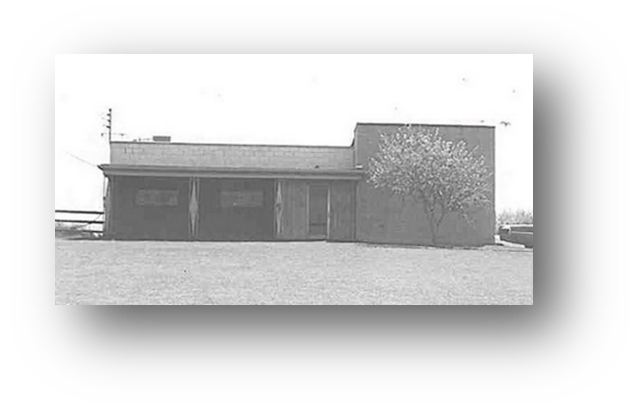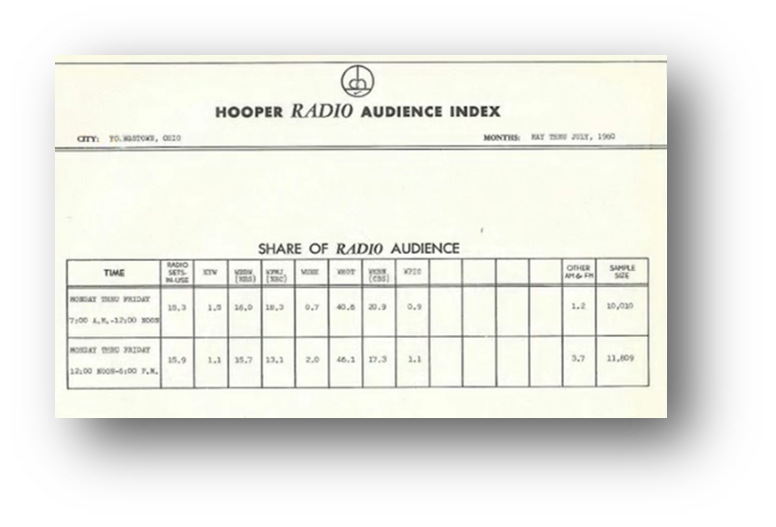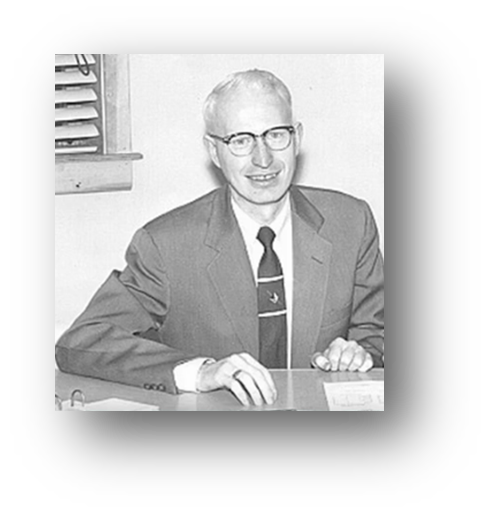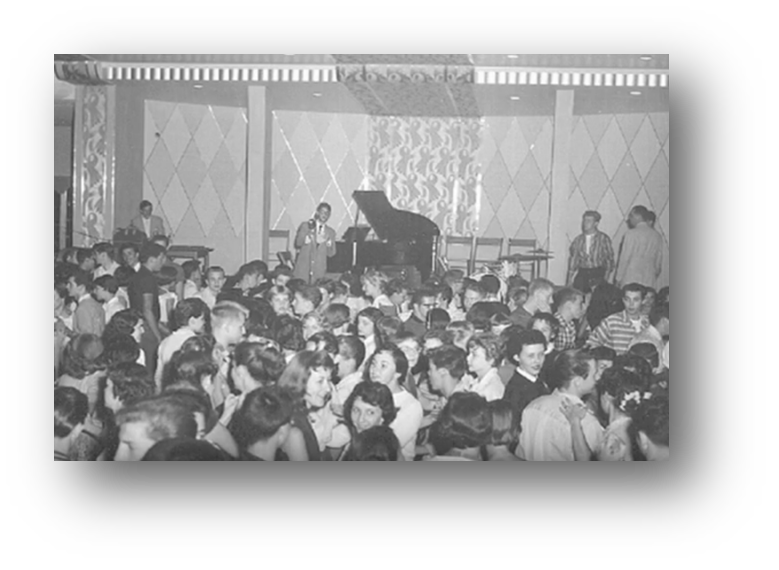It's my morning ritual to scan news headlines and obits while I brush my teeth, phone in one hand and trusty Oral-B in the other. One day last month, a name I recognized among the obituaries startled me enough that I nearly swallowed toothpaste.
The name was William Fleckenstein.
The obituary was as thin as the man I remembered. Aside from a few standard particulars, there was only a brief mention that William Fleckenstein was the “longtime manager” of radio station WHOT.
They left out the part where he started WHOT. To merely label Bill Fleckenstein as a manager was like saying Thomas Edison dabbled in electricity as a hobby.
Fleck, as he was known to friends and employees, was born in 1924 near DuBois, Pennsylvania, in the tiny borough of Reynoldsville.
At some point his family moved to Hermitage and it’s there his career path received a spark. He was 14 when Sharon’s WPIC-AM was under construction on Pine Hollow Road. According to retired WHOT engineer Wes Boyd, adult Fleck would wistfully recall riding his bicycle past the site, fully enthralled as the tower went up.
The radio bug sank its jaws deep into Fleck. He earned his first class broadcast license and headed for the radio biz as an engineer. Fleck was in his 20s when he landed at AM 1390 WFMJ (the TV station arrived after he left). There he met future close friend and business partner Myron Jones.
As Fleck and Myron got to know each other, playing “what if” became a favorite pastime according to Boyd. A distilled version of this was, “what if we put up a station at X frequency and Y power? Where would it fit?” It sounds pretty nerdy, but it sharpened their desire to own and operate their own station. It would also serve them well in their future business expansion.
Their goal of ownership started falling into place by 1950. In an article published online by the National Radio Club, James Viele (better known to local veteran radio listeners as Jerry Starr) described how "what if" became WHOT.
First there was Erie. Jerry wrote that Fleck and Myron decided to leave the comforts of WFMJ to follow their dream, and in 1951 they flipped WJET's “on'' switch in PA’s third largest city.
Despite being a small power daytime-only operation, WJET quickly became successful. Four years later when the FCC permitted the station to move to a more powerful full time frequency, 'JET's original frequency of 1570 AM opened up. Fleck and Myron jumped on the chance to apply for another radio station construction permit at that frequency. Where? Campbell, Ohio.
Fleck and Myron had to summon all of their engineering wizardry to make their plan work in Youngstown. Some context: In the early '50s Youngstown was the 57th largest city in the whole country, right behind Nashville and ahead of places like Phoenix and Sacramento. It also had powerful and established radio giants like WKBN, WFMJ, and WBBW, and the owners of the first two were also moving into this newfangled thing called television.

There was room for WHOT but only on the conditions of being licensed to operate next door in Campbell and operating as a 250 watt daytimer near the tippy-top end of the AM dial at 1570 KHz.
Despite these limitations, the signal reached its target - all 200,000+ inhabitants of Youngstown, Campbell, and Struthers along with slivers of nearby townships.
WHOT hit the air on October 16, 1955. It was a shrimp in a competitive ocean, but this crustacean was a big deal. It could dance, boogie, and twist and shout. It was all about hot Top 40 hit music, a format not many stations in the country had yet attempted.
Even though the average toaster was four times more powerful, WHOT became the toast of the town, achieving audience ratings that not only raised local eyebrows but also grabbed nationwide attention. A 1960 ratings chart from AC Nielsen/Hooper showed WHOT leading the local parade with audience shares 20 points or more above its competitors.
In 1963, WHOT received permission to move down the dial from 1570 to 1330 where it remained for the next 27 years. The move allowed 'HOT to be on the air full time further solidifying its popularity and audience ratings.

Fleck had to be proud of these accomplishments, but he was seldom given to braggadocio. When asked to describe Fleck in three words, one retired member of the sales department replied, “Smart, introverted; patient.” Fleck, unlike most radio station owners/general managers, was never in the spotlight. He hired others for that.
As a boss, Fleck was assertive but never arrogant. He was fair. He was soft-spoken but unafraid to speak his mind. Most of all, perhaps, he was genuine. No games, no pretense, just a real human being.
Maureen Foley recently recalled approaching “Mr. Fleckenstein” once with her heart in her throat. It was 1968, she was 22, and she loved her front office work at the station. However, she had just been asked to chaperone a girls high school track team on a summer trip. A very long trip. All summer. Three months. To California and back. First time traveling anywhere.
Maureen hated the thought of giving up a job she loved. Fleck quietly listened and told her not to worry. He saw the same opportunity as she did and told Maureen her job would still be at the station when she returned.
His generosity was exhibited in other ways, too, like free turkeys at Thanksgiving, free cases of Straub Beer brewed near his birthplace, and bonuses that were plussed-up so that the payroll deductions were more or less his and not yours.
Fleck retired in 1989. He split his time between Hubbard and a condo in Fort Lauderdale until living full time in Florida in later years. Ham radio (call sign W8CXO) was the limit of his broadcasting. And per Jerry Starr's wife Bonnie, he dove deep into his ancestry and came up with seven thousand relatives and ancestors dating back centuries.
Fleck died last month just short of his 99th birthday. In an incredible twist of fate, the man who started WHOT and the man who entertained Youngstown audiences in the morning on WHOT for nearly five decades died 24 hours apart. Fleck went first on February 9th followed closely by A.C. McCullough on the 10th. One imagines the conversion in the afterlife started, “What’re you doin’ here?”
A huge chunk of William Fleckenstein's years was spent playing “what if” in the radio broadcasting business. The answers that sprang to his mind gave us a radio station that played songs we danced to and sang along to in our cars. The answers to "what if" also gave us disc jockeys that tickled our funny bone. Perhaps most importantly, the "what ifs" created memories that continue to spark warm and happy feelings to this day.
For all this and more we say, “Thank you, Fleck.”





